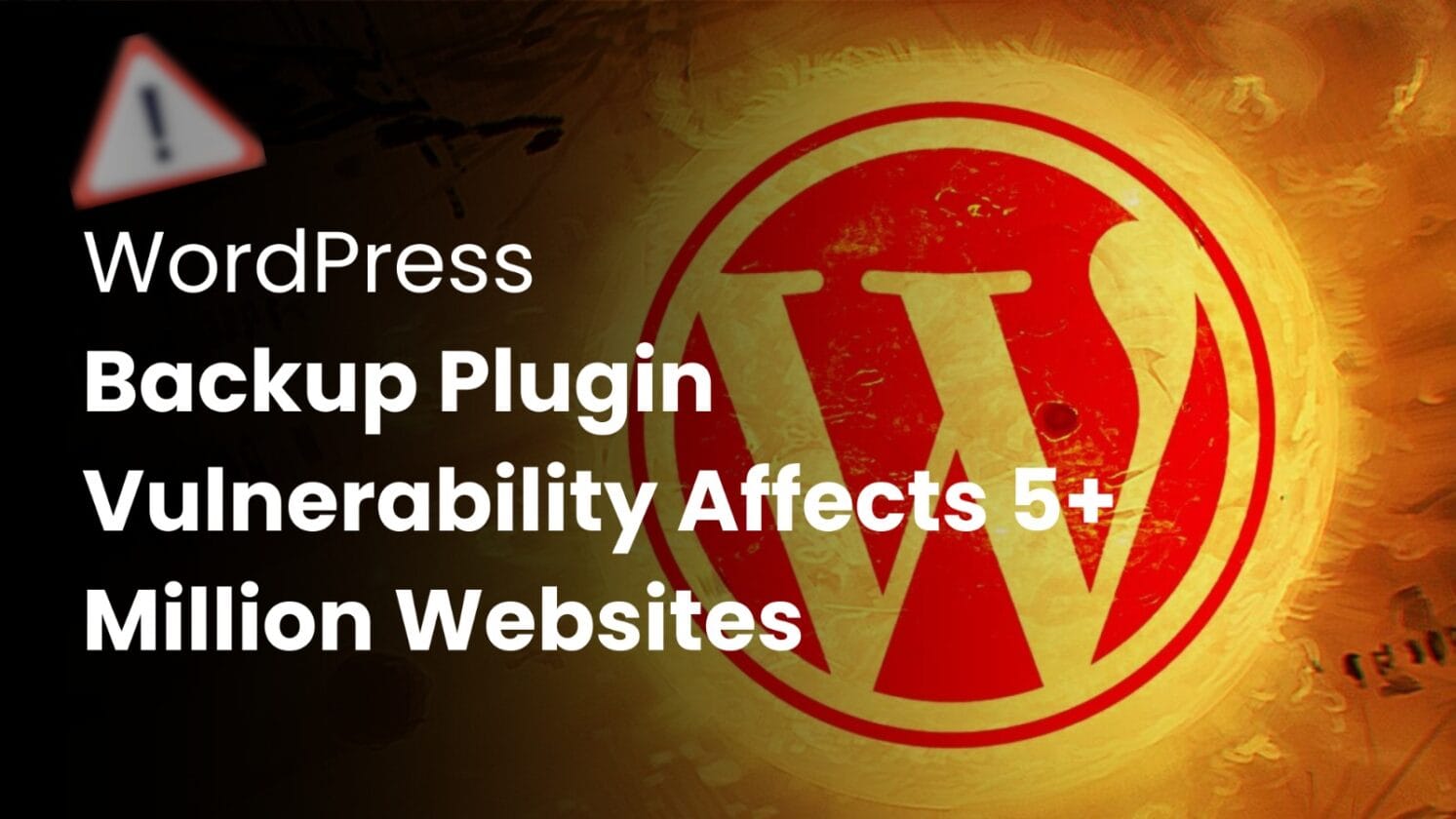WordPress Backup Plugin Vulnerability Puts Over 5 Million Websites at Risk
A Critical Security Flaw Threatens Millions of WordPress Sites
A major security vulnerability in a widely used WordPress backup plugin has put over 5 million websites at risk. The flaw, recently discovered by cybersecurity experts, could allow hackers to exploit weaknesses in the plugin, potentially leading to data breaches, malware injection, and even complete website takeovers.
Website administrators and business owners who rely on this plugin for regular backups should take sudden action to secure their sites. Cybercriminals actively seek out vulnerabilities like this, and could become an easy target to an unpatched website.
Understanding the WordPress Backup Plugin Vulnerability
Security researchers discovered that the flaw in the backup plugin allows unauthorized users to gain access to backup files stored within the website’s directories. These backups often contain sensitive data, including database information, configuration settings, and user credentials. If attackers manage to retrieve and decrypt these files, they can potentially take control of the website.
The vulnerability has been classified as “high severity,” meaning it poses a high risk to websites that have not yet updated their plugin. Before the latest security patch The flaw affects all versions, making it crucial for website owners immediately install the update.
How Hackers Exploit Backup Plugin Vulnerabilities
Hackers often use automated bots to use the internet for vulnerable websites. Once they identify a site running an outdated version of the WordPress backup plugin, they can start an attack in different ways:
- Extracting Backup Files: Attackers gain unauthorized access to stored backup files, which can hving passwords, database credentials, and other information.
- Injecting Malicious Code: By modifying backup files before restoration, hackers can inject malware into a site, leading to phishing attacks or data theft.
- Gaining Administrative Control: If the backup contains user login credentials, hackers can use them to log in as administrators and hackers can take full control of the targeted website.
Steps to Secure Your WordPress Website
If you are usiing this WordPress backup plugin, follow these steps to protect your website from potential threats:
1. Update the Plugin Immediately
The plugin developers have released a security patch to fix the vulnerability. Updating to the latest version is the most effective way to reduce the risk. To update:
- Log in to your WordPress dashboard.
- Go to Plugins > Installed Plugins.
- Locate the affected backup plugin.
- Click Update Now if an update is available.
2. Review Backup Storage Locations
make sure that your backup files are stored securely. Ideally, backups should be saved in an off-site location, such as a cloud storage service with strong encryption and access controls. Avoid keeping backup files in publicly accessible directories on your server.
3. Scan Your Website for Malware
Use a trusted WordPress security plugin or an external malware scanner to check for signs of compromise. If your site has already been targeted, immediate action is necessary to remove any malicious code and restore its security.
4. Strengthen User Authentication
Enhance your website’s security by implementing:
- Two-Factor Authentication (2FA): Requires an additional verification step when logging in.
- Strong Password Policies: Use complex, unique passwords for all user accounts.
- Limiting User Permissions: Only grant administrative access to trusted users who require it.
5. Monitor Website Activity
Regularly check your website’s logs for suspicious activities. If you notice unusual login attempts, unauthorized file changes, or unfamiliar user accounts, investigate immediately.
6. Schedule Regular Security Audits
Performing regular security checks helps ensure your site remains protected. Consider working with cybersecurity experts who can conduct vulnerability assessments and recommend best practices for keeping your website secure.
Why WordPress Backup Security Matters
Backups are an essential component of website security, allowing site owners to recover their data in case of cyberattacks, server failures, or accidental deletions. However, if the backup process itself is compromised, it can have devastating consequences.
A poorly secured backup can be a goldmine for hackers. Cybercriminals often target backup files because they contain everything needed to reconstruct a website, including admin credentials and database records. This makes it even more crucial to use a secure backup solution that encrypts data and restricts access to authorized users only.
The Role of Plugin Developers in Website Security
In maintaining the security of the WordPress ecosystem WordPress plugin developers play a critical role . Security vulnerabilities are often discovered through responsible disclosure by ethical hackers and cybersecurity researchers. In this case, the backup plugin developers acted swiftly to release a patch, but it is up to website owners to apply these updates promptly.
Plugin developers should also follow best practices such as:
- Conducting regular security audits.
- Implementing secure coding standards.
- Providing clear and timely communication about vulnerabilities and patches.
What Happens If You Ignore the Security Update?
if user not update the backup plugin could have severe consequences, including:
- Data Theft: Hackers can easily access confidential information, including user data, which could lead to legal and compliance issues.
- Website Defacement: Attackers can stole website content, leading to reputational damage.
- Blacklisting by Search Engines: Google and other search engines may blacklist compromised websites, causing a significant drop in traffic and SEO rankings.
- Loss of Revenue: For businesses that rely on their websites for sales or customer engagement, a security breach can lead to financial losses.
Final Thoughts: Take Action Now
Act immediately If you are using this WordPress backup plugin, to secure your website. implementing strong security measures by Updating your plugins regularly, and monitoring for vulnerabilities can help prevent cyberattacks.
Cybersecurity threats are constantly evolving, and staying proactive is the best defense against potential exploits. By taking the necessary steps, you can protect your website, save your data, and ensure a secure experience for your users.


